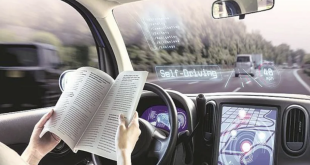
If your buying decisions are being increasingly swayed by considering the environmental impact, an electric car will seem like a no-brainer. With news that the UK Government is banning new petrol and diesel cars from 2030, you may want to prepare for this transition in good time. The fuel crisis of 2021 also made more motorists consider switching to electric.
Aside from being green, and part of a huge transport shake-up in the UK, we’re taking a look at whether the electric car is a good match for your driving habits and lifestyle.
Are they suitable for long distance drives?
You may picture driving along the motorway to find that your car runs out of power. But the truth is that while this can happen, if you remember to charge-up at appropriate intervals this shouldn’t be an issue. It’s no different to the risk of finding that your tank has run out of fuel.
You’ll need to plan ahead a little more than with a fuel-powered car. Expect the odd delay. For instance, a charge point may be in use when you need it. In this case, you’ll need to wait your turn or find another one local to your location.
According to the RAC, you can currently expect between 100 and 300 miles of range from a fully charged electric car, depending on the model. Sure, you won’t be able to drive from Land’s End to John O’ Groats on a single charge, but plenty of long-distance journeys across the UK are more than doable.
What about towing?
Electric cars produce maximum torque all the time – making them capable of pulling away from a standstill with a heavy load in tow. You should choose an appropriately sized electric car, though. A smaller model probably won’t hack towing a caravan up and down the motorway.
Can electric cars go off-roading?
Four-wheel-drive electric cars do exist. But how do they compare to their fuel-powered counterparts? 4WD is ideal for driving in adverse weather conditions as it provides more traction, and it’s handy to know that electric cars can be just as good off-road as petrol and diesel cars.
Are they for the whole family?
There are plenty of spacious EVs on the market that are practical for the whole family.
How expensive are they to buy and run?
According to data published by EDF Energy, running costs should be a lot cheaper with an EV compared with a petrol or diesel car.
They calculated that travelling 100 miles in an EV would cost around £5 or 4.91p per mile. In comparison, petrol cars would cost around £12 or 12p per mile. This is a rough estimate, but you can see the stark difference.
The downside is that these cars tend to be more expensive to buy. But as they become more mainstream in the lead up to 2030, they should come down in price.
Don’t want to splash out, but still want to give an electric vehicle a go? You could always check out your local used car dealership to save some money on the upfront costs of buying an electric car.
Should you get an electric car? One final consideration is that electric cars come with an automatic transition. These are considered easier to drive than manual. We hope this article will help you make the right decision.
 Automotive Blog Automotive Blog brings you the latest news, car reviews and information on the automotive industry.
Automotive Blog Automotive Blog brings you the latest news, car reviews and information on the automotive industry.



